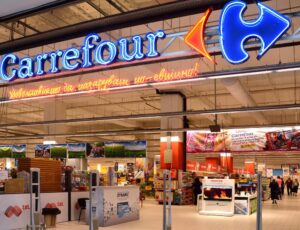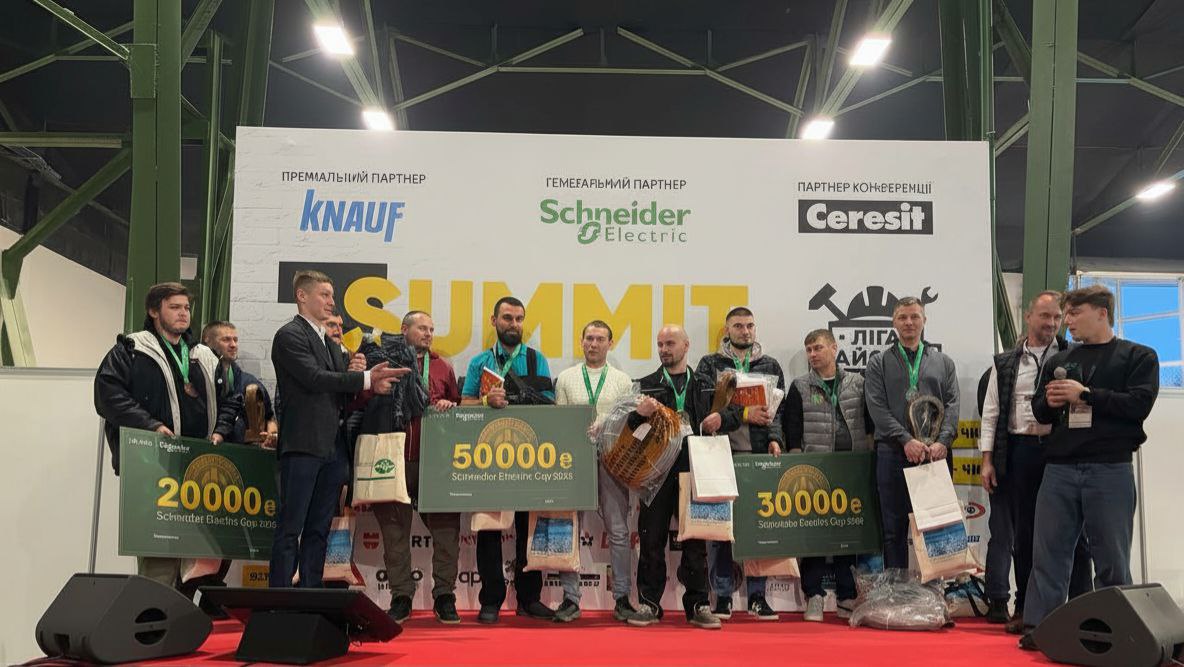
During the full-scale invasion, Ukraine commissioned 3 million tons of oilseed processing capacity, with the same amount planned and under construction, so there were underutilized enterprises in the country, said Minister of Economy, Environment, and Agriculture Oleksiy Sobolev in an interview with Forbes Ukraina.
“In September, rapeseed oil exports increased 4.5 times compared to August, turning raw material exports into processed products. The state receives a fiscal effect from duties on soybeans and rapeseed, the proceeds of which are directed to a special fund to support the agricultural sector, in particular the frontline territories, i.e., the main goal of the duty is being achieved,” he commented on the results of the introduction of a 10% export duty on soybeans and rapeseed.
The minister noted that to ensure the proper functioning of this mechanism, the government adopted an experimental resolution stipulating that producer-exporters do not pay duties like the rest. In particular, the resolution specifies the method by which a producer confirms that they have grown a particular crop and are entitled to exemption from duties.
In addition, Ukraine is introducing monitoring through the State Agrarian Register to form a unified system of soybean and rapeseed exporters.
Sobolev added that a mechanism for exchanging information between customs and tax authorities is currently being developed with a view to transitioning to an automatic mode in the future. This will be an IT solution, similar to the electronic VAT administration system (SEA VAT), which will be operational by September 2026.
“After the end of the marketing years, we will be able to evaluate the results. Preliminary data already indicate an increase in the share of domestic processing of rapeseed and soybeans,” the Minister of Economy concluded.

The Sukha Balka mine (Kryvyi Rih, Dnipropetrovsk region), part of Alexander Yaroslavsky’s DCH group, increased its net loss by 39.2% in January-September of this year compared to the same period last year, from UAH 218.898 million to UAH 304.774 million.
According to the interim report, net income for the reporting period increased by 1.5%, to UAH 1 billion 870.388 million from UAH 1 billion 843.096 million.
Undistributed profit at the end of September 2025 amounted to UAH 1 billion 791.218 million.
Production volumes in Q3 2025 amounted to 208.2 thousand tons of commercial ore, in Q2 2025 – 228.3 thousand tons, and in Q1 2025 – 203.2 thousand tons. At the same time, production volumes in Q3 2024 amounted to 217.3 thousand tons of marketable ore, in Q2 2024 – 268.2 thousand tons, and in Q1 2024 – 179.2 thousand tons.
In total, for the first nine months of 2025, commercial iron ore production amounted to 639.7 thousand tons, which is 3.8% less than for the first nine months of 2024 (664.7 thousand tons).
According to the annual report, the mine ended 2024 with a net loss of UAH 333.856 million and net income of UAH 2 billion 320.449 million, while at the end of 2023, it received a net profit of UAH 114.837 million with an income of UAH 2 billion 923.317 million.
In July 2024, the company decided to pay dividends to its shareholders for 2007, 2008, 2012, 2020, and 2022 at a rate of UAH 1.2 per ordinary share, including: UAH 0.089 for 2007; UAH 0.157 for 2008; UAH 0.093 for 2012; UAH 0.287 for 2020; UAH 0.574 for 2022. Also, in 2024, the amount of accrued dividends amounted to UAH 1 billion 4.865 million (UAH 1.2 per share), and the amount of dividends paid/transferred amounted to UAH 541 million 569.772 thousand.
In 2024, commercial iron ore production volumes decreased by 3% compared to 2023, to 917 thousand tons due to a shortage of personnel in connection with the mobilization of miners into the ranks of the Armed Forces of Ukraine, as well as due to the unscheduled shutdown of the Yuvileina mine for the repair of the skip hoisting installation in August 2024. At the same time, the Yubileinaya mine produced 766,600 tons (a 15% decrease compared to 2023) and the Frunze mine produced 150,500 tons (a 2.6-fold increase).
Over the past year, about 12 new blocks with a total capacity of about 1,198,100 tons of raw materials were developed.
The average number of employees at Sukha Balka PJSC in 2024 was 1,330, and the average monthly salary in 2024 was $522, which is 7.7% higher than in 2023 (in hryvnia equivalent, the salary level in 2024 increased by 18.2% compared to 2023, with a lower percentage increase in USD due to a 9.8% increase in the exchange rate from an average of 36.58 UAH/USD in 2023 to 40.16 UAH/USD in 2024). The main reason for the growth in the level of wages in 2024 was the indexation of tariffs and salaries of employees from March 1, 2024.
During 2024, self-propelled equipment was introduced for various works and ore mining at the Yuvileina mine. The use of self-propelled equipment in tunneling work also continues, and the fleet of equipment is growing. The use of self-propelled equipment in tunneling, cutting, and mining work has significantly increased the pace of work and improved productivity.
At the Frunze mine, all investment projects were suspended in 2024 due to the military aggression of the Russian Federation and emergency power cuts to consumers, but a large-scale investment project is planned, which will allow the mine to continue operating until 2037 and extract additional volumes of ore. The essence of the project is to use inclined workings to deepen the mine from the existing horizon of 1,135 m to 1,500 m and to apply modern technologies for unmanned loading and delivery of rock mass.
In 2025, it is planned to continue the implementation of projects started in 2021-2022, including the use of self-propelled equipment at both mines of the enterprise. In 2025, it is planned to continue research on the development of technology for the production of products with a minimum content of 65%-70% Fe. Specifically, this involves conducting research on the enrichment of iron ores and magnetite quartzites using dry and wet enrichment technologies.
As reported, PJSC “Sukha Balka” reduced its net profit by 2.7 times compared to 2021, to UAH 487.878 million from UAH 1 billion 326.460 million, according to the results of 2022.
The Sukha Balka mine is one of the leading enterprises in the mining industry in Ukraine. It extracts iron ore using underground methods. It consists of two mines with underground crushing complexes and surface crushing and sorting complexes: the Yuvileina mine (capacity of 2.4 million tons per year) and the Frunze mine (capacity of 1.170 million tons per year). Frunze Mine (capacity 1.170 million tons per year)
The DCH Group acquired the mine from the Evraz Group in May 2017.
According to the NDU for the second quarter of 2024, Yaroslavsky, who is designated as a non-resident of Ukraine (a citizen of Great Britain – IF-U), directly owns 77.41% of the mine’s shares, and Artem Alexandrov, a resident individual, owns 15.2% (at the end of 2024, he owned 19.9999% of the shares).
The authorized capital of Sukha Balka PJSC is UAH 41.869 million, with a share par value of UAH 0.05.

The general meeting of shareholders of Globus Bank (Kyiv) has decided to dismiss the Chairman of the Supervisory Board Dmytro Polkovskyy and elect one of the independent members of the Board – Dilara Mustafayeva. According to the bank’s message in the information disclosure system of the National Commission on Securities and Stock Market (NCSSM), the relevant decision was made at the general meeting of shareholders, held on October 30, in accordance with the application submitted by Polkovskiy.
The decision to change the head of the nabsoyet came into force on November 3.
Polkovsky had been the head of the nabsovet since March 2016 and owns 16.2% of the bank’s authorized capital.
Mustafayeva was elected chairman of the supervisory board for a term from October 31, 2025 to April 30, 2026. She became a member of the board in February 2019. Mustafayeva has been the director of the banking market analysis department of Financial Pulse Public Association since April 2015 and the director of the municipal department of IBI rating agency since February 2020 (part-time).
Globus Bank was registered in 2007, the regional network has 30 branches.
According to the National Bank, as of August 18, 2025, the shareholders of the bank were Elena Silnyagina (50.5%), Dmitry Polkovsky (16.2%), Sergey Mamedov (10.5%), Evgeny Varyagin (9.9%), Bakhtari Hedayatollah (9.89967%), Taras Lesovoy (3%) and Andrey Pinchuk (0.00033%), who own the authorized capital indirectly.
As of September 1, 2025, with total assets of UAH 14.98 billion, the bank ranked 25th among 60 banks in Ukraine.

According to Serbian Economist, the Serbian Ministry of Internal and Foreign Trade reported that on November 3, Minister Jagoda Lazarevic met with representatives of Carrefour, who confirmed their interest in entering the Serbian market. According to the ministry, the retail chain is considering direct entry without intermediaries, intends to make Serbia a regional hub and attract local suppliers; negotiations will continue and Carrefour’s top management will come to Serbia by the end of this year.
Serbian business publications, referring to the minister’s statement, specify that the working model is being discussed in several formats, including the search for local franchise partners, while the basic scenario is the direct presence of the chain. The ministry positions the possible arrival of a new player as a way to strengthen competition and offer a wider range of products at competitive prices.
Tanjug Agency notes that Carrefour’s interest in Serbia fits into the Balkan expansion of the chain; previously, specialized resources reported about the exclusive rights of the Greek structure to develop the brand in the region, but the current statements of Belgrade emphasize the direct entry into the market.
The company has not officially announced specific launch dates and locations.
Earlier, Serbian Economist reported about the chain’s negotiations about entering Serbia, but without final decisions. The final terms and format of the presence will depend on the results of the management visit, availability of suitable retail space and agreement of terms with the regulator and potential local partners.
https://t.me/relocationrs/1691

A week-long program for a group of children from the Zaporizhzhya region of Ukraine has started in Kotor, Montenegro. According to Boka News, 36 children arrived in the city, many of whom lost their parents to the war. The visit was agreed between Kotor Mayor Vladimir Jokic and Ukrainian Ambassador to Montenegro Oleg Gerasimenko. The program is scheduled for November 3-10.
At the reception in the Bisanti Chamber, the mayor welcomed the children and said that a cultural and educational itinerary has been prepared for them: a walk through the Old Town and a visit to the Maritime Museum, a trip to Perast and a boat trip on Boka Kotorska Bay, as well as meetings with peers in local schools. A climb of the city walls, a day trip to Lovcen and a vacation on Plavi Horizonte beach are planned.
The teachers accompanying the group thanked the residents and authorities of Kotor for their hospitality, noting the importance of emotional relief and safety for the children. Publications in local media and social networks specify the number of the group and dates of stay

On October 24, 2025, the second Ukrainian Electricians Championship, the Schneider Electric Cup, took place in Kyiv. The Electricians Championship is a competition aimed at bringing together the best professionals in the industry and promoting blue-collar professions.
Participants from different regions demonstrated their skills in practical tasks, competing for the title of the country’s best electrician. The event aimed to highlight the importance of the profession and attract young people’s attention to technical specialties.
This year, nine teams consisting of two to four participants selected based on the results of the preliminary stage (38 participants in total) competed in the championship. The teams included participants from Kharkiv, Kyiv, Odesa, Vinnytsia, Cherkasy, Khmelnytskyi, Zhytomyr, and Dnipro. They solved both theoretical tasks and a practical case study—assembling a modern professional electrical panel.
The event was organized by Schneider Electric, a leader in electrical management and automation, a global French company with 180 years of history, which has been present in Ukraine for over 30 years and is the largest electrical engineering company in Ukraine, together with the League of Masters, a community of professionals that brings together masters of various specialties to create a professional environment and promote blue-collar professions, as well as with the support of partner LAPP UKRAINE, a leader in innovation in cable and wire products, a company that offers a full range of solutions for electrical connections: from cables and connectors to ready-made systems and accessories.

“The Schneider Electric Cup is a combination of professionalism, technology, and passion for the business. We believe that the development of the energy industry begins with people — those who ensure the reliability, safety, and efficiency of electrical systems every day. By supporting such specialists, we are investing in the future of Ukraine, its energy sustainability, and sustainable development,” commented Mikhail Bubnov, CEO of Schneider Electric in Ukraine.
Compared to last year, the number of tasks was increased, and their complexity grew so that the masters could demonstrate their maximum potential. The winners and participants received not only valuable gifts, but also a unique experience, new acquaintances, and the thrill of real competition.
“It is important for us to create opportunities where electricians can demonstrate their knowledge and skills, experience team spirit, gain new experience, and learn about new technologies. The Schneider Electric Cup is not only a competition but also a celebration of the profession,” emphasized Maxim Sydorenko, leader of the Schneider Electric electricians channel.
In total, more than 500 participants from various construction industries took part in the Summit.
About Schneider Electric
Schneider Electric is a global leader in energy technology, delivering efficiency and sustainability through electrification, automation, and digitalization.
The company provides solutions for buildings, data centers, factories, infrastructure, and energy networks, creating open, interconnected ecosystems that increase productivity, resilience, and sustainability.
The portfolio includes smart devices, software-defined architectures, AI-based systems, digital services, and consulting.
Schneider Electric has 160,000 employees and more than 1 million partners in over 100 countries and is consistently ranked among the world’s most sustainable companies.